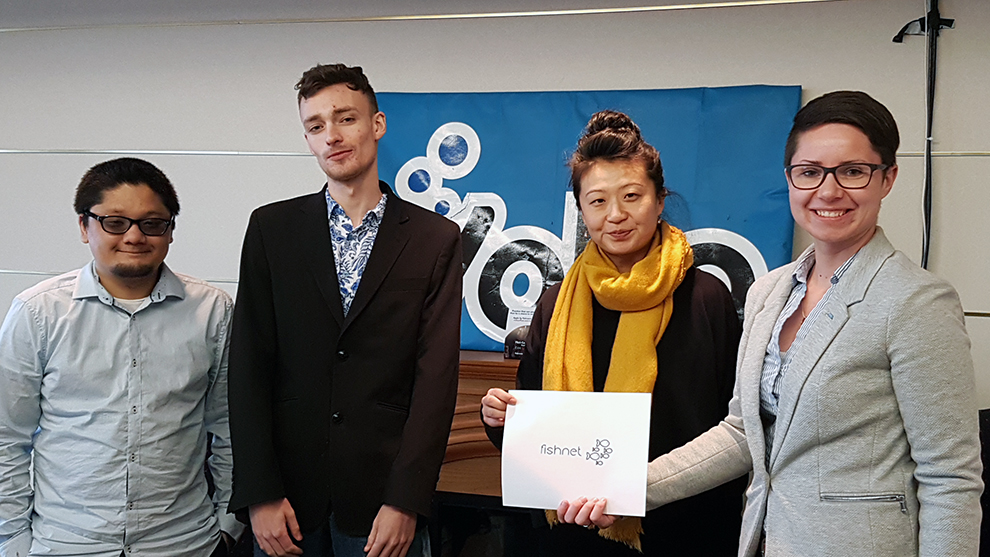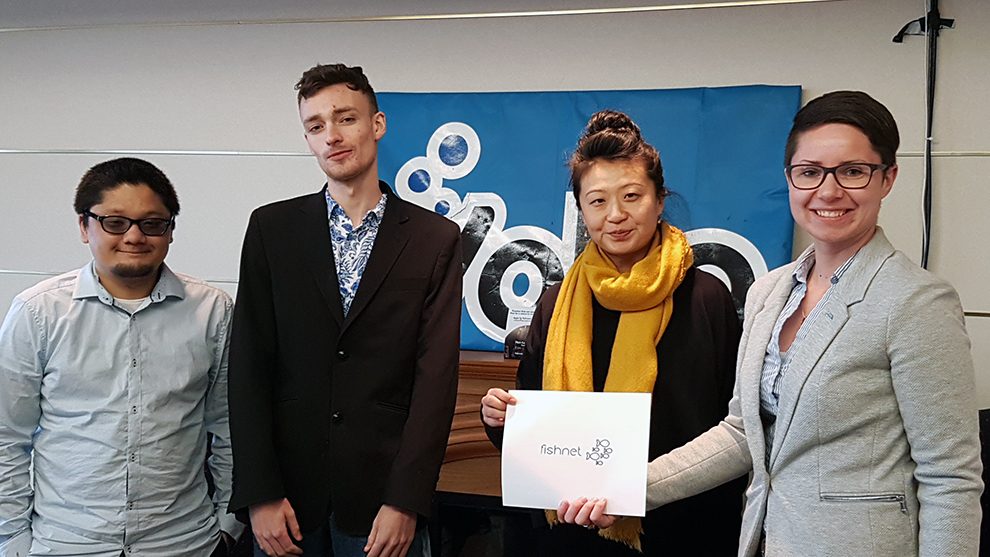Fish
Halifax hackathon seeks to solve global marine environment problems
Participants spent the weekend at Volta Labs coming up with working solutions

caption
Halifax participants in Fishackaton show off their product logo
caption
Halifax ‘Fishackathon’ participants show off their product logo.Huddled around laptops, their tables cluttered with paper, a group of strangers spent their weekend developing software that might solve marine habitat problems.
“Sometimes it’s good to have different eyes on the same problem,” said Saihl Ahuja, Volta Labs’ event co-ordinator.
Fishackathon takes that idea to heart, as participants from around world — including those at Volta Labs in Halifax — took part in a weekend hackathon.
Participants formed teams on Saturday and selected a challenge from 11 different choices. Each person had a different set of skills and reasons for joining. Related stories
“I like fish, I like fish and chips, so it seemed like a pretty good thing to do,” said Brad Nauss, who took part in the Halifax event after hearing about it online.
Nauss used his marketing background and provided branding for his team’s project. They created an app to help researchers and fishermen collaborate on research efforts.
The winning team, Team Catching-Up, was announced Sunday night. Its app aims to keep fishermen safe from price exploitation. The app informs users how much a fish is actually worth on the market.
“In South Africa, fishermen get like $6 for (shark fins), but actually in the real market, it is $1,000,” said Pulkit Garg, a second-year computer science student at Saint Mary’s University and member of Team Catching-Up.
A hackathon, a play on the word marathon, is an intensive software project collaboration. With only two days to brainstorm and build their project, work went at a rapid pace.
“Since yesterday, our solution has changed a number of times,” said participant Hanna Mielczarek on Sunday. She worked with Nauss and provided web programming and project management support.
Mielczarek said she had a free weekend and she likes to learn and change the world, so she decided to take part.
Fishackathon has been around since 2014, but Ahuja said this is the first year for Halifax. The event came about after the organizer, tech non-profit HackerNest, reached out to Volta Labs.
Team Catching-Up will now compete regionally, then a winner will be selected to represent North America in the final global competition.
Previous winning ideas include data systems to predict the spawning and hatching of the invasive Asian carp species in the Great Lakes region, and an app to help port inspectors access laws and regulations more easily.

